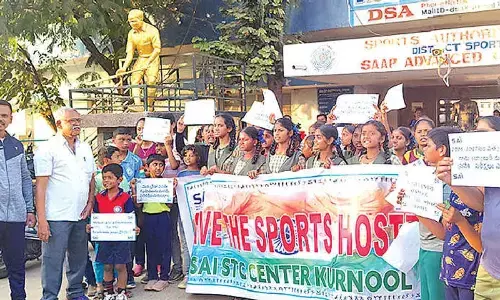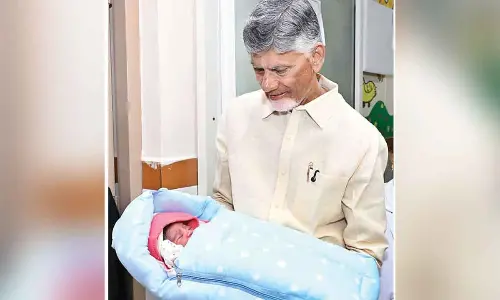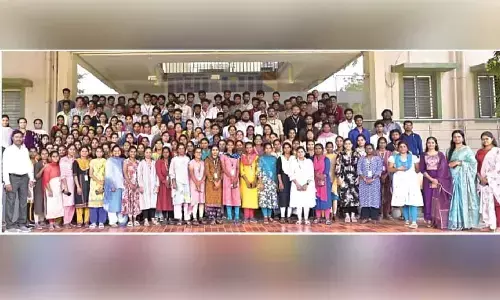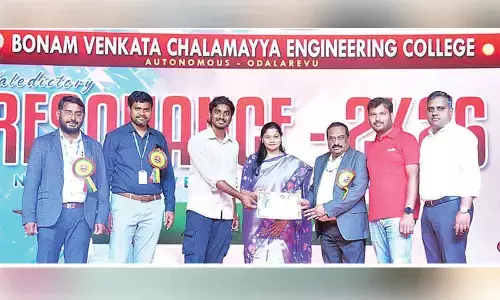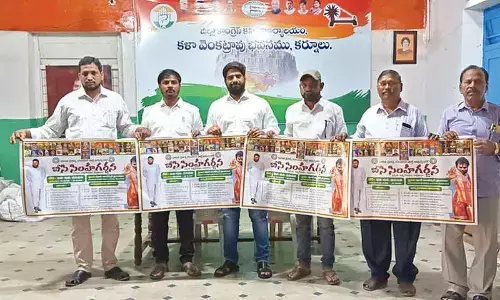Cotton Barrage gets international honour
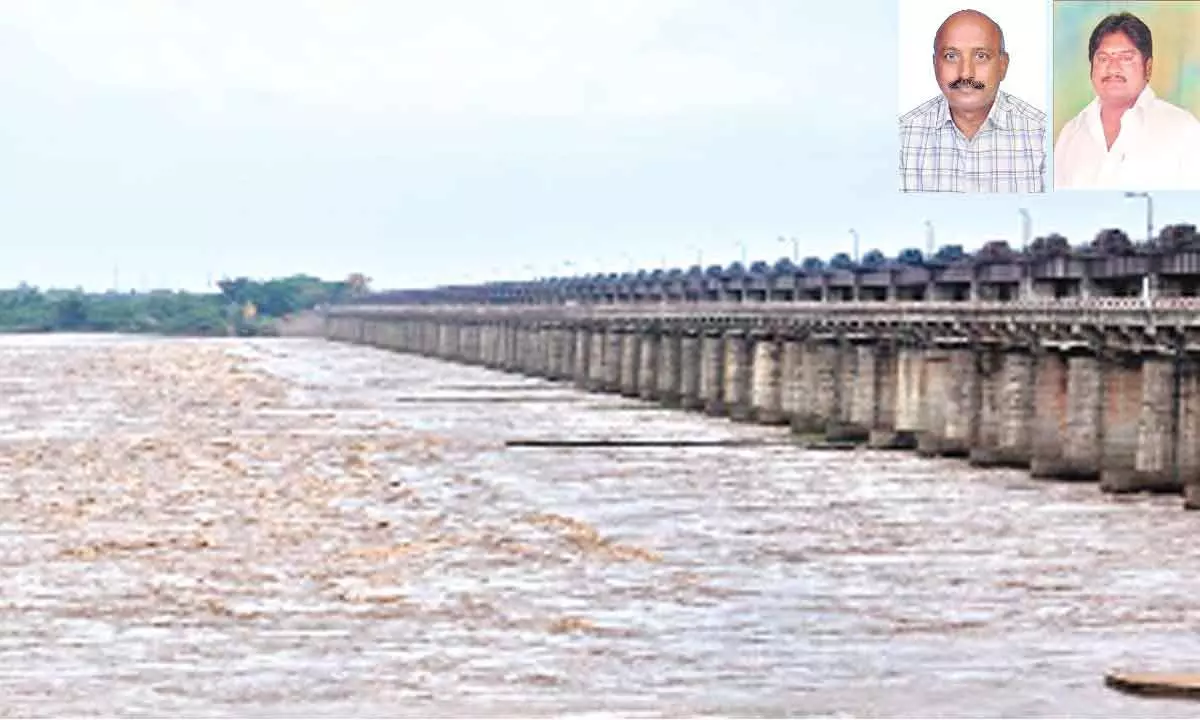
Sir Arthur Cotton Barrage at Dowleswaram; K Narasimha Murthy, SE, Headworks; Founder-president of Cotton District Sadhana Samiti Girajala Veerraju (Babu)
Sir Arthur Cotton (SAC) Barrage is recognised as a World Irrigation Heritage construction. The International Commission on Irrigation and Drainage (ICID) has certified this as a heritage construction.
Rajamahendravaram (East Godavari District): Sir Arthur Cotton (SAC) Barrage is recognised as a World Irrigation Heritage construction. The International Commission on Irrigation and Drainage (ICID) has certified this as a heritage construction.
Dowleswaram SAC Barrage Headworks Superintendent Engineer Narasimha Murthy expressed happiness as this historical structure got international recognition. Replying to a question of The Hans India reporter, he said that this recognition does not entail financial benefits, especially funding. It should be considered as a great recognition and respect for an ancient building that has been serving for a long time, he added.
Dowleswaram Barrage has many special features, which an ancient irrigation construction of 160 years. It turned Godavari Delta into a rich granary and protected it from floods.
Before Sir Arthur Cotton constructed a barrage on Godavari at Dowleswaram, people of two districts in Godavari delta suffered from severe drought conditions. As per official records, in 1833 there was a drought and thousands of people died. In 1839, storms and floods submerged farms and villages and thousands of people suffered.
Sir Henry Mount, the then District Officer, sent a report to the British government on these dire conditions, and the government sent an engineer, Arthur Cotton, to assess the feasibility of constructing a dam over Godavari river. After searching several areas, he selected the area that was suitable for dam construction due to the width of the river between Dowleswaram and Vijjeswaram. On December 23, 1846, the British government approved for dam construction.
About 10,000 labourers, 500 carpenters and 500 blacksmiths were appointed and the stone was brought to the riverbank by railway wagons. In February 1849, the dam work started on Vijjeswaram side and was completed in 1852. Arthur Cotton worked as a labourer along with everyone else to build this structure.
Veenam Veeranna, a sub-engineer, helped a lot in the construction of this project and a plaque in his name was installed on the dam.
Between 1862-67 the height of the dam was increased by two feet and again in 1897-99, the height was raised by nine inches.
As the dam weakened, the Andhra Pradesh government started a new dam with a road in 1970 and completed it in 1982. This was named after Sir Arthur Cotton.
Founder-president of Cotton District Sadhana Samiti Girajala Veerraju (Babu) of Kadiyam said, "It is a matter of great joy and pride for all of us that the dam built by Arthur Cotton stands as one of the World Heritage structures. It is one of the greatest irrigation structures in India."
Former president of All India Nursery Men's Association Palla Subrahmanyam of Kadiyapulanka said that because of the Cotton barrage only, lakhs of acres came under cultivation in both Godavari districts and irrigation and drinking water is available to all. He added that Cotton Dora, who built a dam on Godavari's wasted waters, is immortal.


